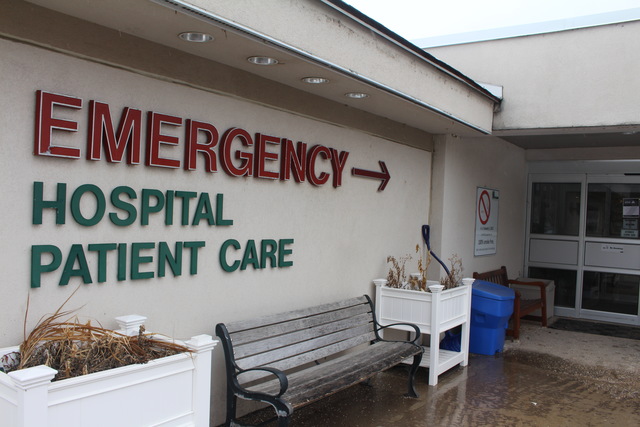Only 15 beds, four transport ventilators, no ICU
By Lisa Gervais
The physicians of Haliburton County released an open letter to seasonal residents March 28 asking them to keep away from the area due to COVID-19.
The letter came after Premier Doug Ford and Warden Liz Danielsen asked city dwellers on March 26 to stay home, not go to their properties in cottage county, to avoid straining local stores and health care.
The doctors said that the County realizes the importance of seasonal residents and visitors to the economy ,and that they value their desire for time away from busier locales.
However, they said they face some “harsh” realities of limited capacity to manage a health emergency.
“A substantial influx of visitors will further challenge our ability to source adequate beds, medical supplies, equipment and personal protective equipment to manage this pandemic,” they said.
Directly speaking to cottagers, they asked them to consider their choice to reside at their seasonal residences during COVID-19.
“We would like to request that before you decide to spend this uncertain time at the cottage, you consider that in Haliburton, we have a small (15-bed) hospital manned by a small pool of local physicians and another group of physicians who travel to our area for Emergency Room shifts.
“The same group of local physicians cover their own clinics, long-term care (three homes), and hospital in-patients.”
They added that In Minden, they have an Emergency Department, but no inpatient beds.
Further, they said neither location is equipped as an Intensive Care Unit (ICU) and each have two ventilators that are used for transport to the closest ICU over an hour away.
They said they anticipate that their closest ICU will be strained supporting the population within its radius.
In addition, “transport of patients between our hospitals and larger centers is always challenging but moving COVID-19 patients will put many emergency health providers (paramedics and nurses) at risk.”
The physicians said they have extremely dedicated nurses, paramedics and support staff, who are all being asked to give beyond what should be asked of them.
They further pointed out the large proportion of senior citizens in their practices that are relying on them to keep them safe, as they are the most vulnerable.
“We collectively have a lot of work to do and look forward to when this threat is behind us and we can all rest and truly enjoy our County again. Until then, we ask that you recognize the limits of our local health care system and consider remaining at your primary residence where you will receive more advanced care if you require it. This will allow us to focus on giving patients the best possible care we can provide within our limitations.”
On March 28, Ford said he’d heard from a number of mayors throughout cottage county, worried about an influx of visitors from the city.
“If you have a cottage, please don’t come up to the cottage,” Ford said. “I have a cottage. I’d love to go up there but can’t right now.”
Ford promised that once the worst is over with COVID-19, “we’re going to welcome you with open arms.”
FOCA update:
The Federation of Ontario Cottagers’ Association (FOCA) put out a notice this past weekend as well. It said it had heard from members, partners, and municipal contacts and “many are concerned that any transiting increases the chance for spread of illness.”
The association went on to say, “cottage country isn’t expecting you yet. Most of us wouldn’t ordinarily open the cottage until nearer to the May long weekend. As we already know from our local grocery experiences, parts of the supply chain are under strain. Additionally, rural hospitals have limited capacity and resources, and you should consider where your health needs can best be met, in an emergency situation.”
For those who do relocate or are there already, FOCA suggested:
- Connect with your lake association on social media.
- Provision yourself for several weeks (with food, drinks, gas, hardware supplies, prescriptions) before leaving your off-season community, so that you will not need to make stops along the way. This is not the time for our usual credo to “buy local” in cottage country. As you would do anywhere at this time, should you urgently need anything from a retailer or pharmacy, you should call ahead to see if there are options for safe pickup or delivery.
- Continue to follow all the principles of social distancing at the cottage. Although cottage country is usually the place for relaxed rules, that cannot be the case anywhere for the foreseeable future. Cottages are often the gathering places for multiple households in an extended family; for now, and possibly for some time to come, that could put everyone at risk.
- Develop an exit plan with immediate family, in case you develop any indications of illness while at your waterfront property.





